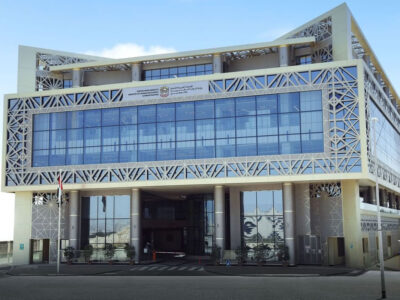Emirati salaries were more resilient to the impacts of the coronavirus pandemic last year, largely remaining the same in 2020 in comparison to the pay cuts expats experienced, according to the Hays 2021 Emiratisation Salary & Employment Report released on Sunday.
Sixty-four percent of Emiratis’ salaries remained the same in 2020 as in 2021, compared to 46 percent of expats, the report by the global recruitment experts indicated. While 10 percent of Emiratis had their salaries cut in 2020, more than double the number of expats (21 percent) had their salaries reduced.
In alignment, the report indicated that 33 percent of expats received a salary increase in the past 12 months while 25 percent of Emiratis had a pay rise.
Things look brighter for the year ahead with a significant 49 percent of UAE nationals and expats expecting to move employers in 2021, suggesting much optimism for the number of available jobs in the local market going forward.
Similarly, the report found 62 percent of Emirati professionals to be positive about their career prospects for the next 12 months.
Salary expectations for the remainder of 2021 are aligned for national and expat professionals in the UAE with 55 percent of UAE nationals expecting their salary to remain the same as in 2020 compared to 52 percent of expats.
“These findings certainly reflect our own predictions. We do not expect the pandemic to negatively affect salaries further in 2021. Instead, we expect the majority of salaries to remain the same in 2021 as in 2020 with increases being paid to those hitting required performance targets, regardless of UAE national status,” said Samantha Wright, senior recruitment consultant of Hays Emiratisation division.
The number of jobs available in the market is already on the rise and this trend is expected to continue with more opportunities for UAE nationals in the private sector compared to previous years, explained Wright.
“This is a very exciting time for Emirati professionals. Thanks to ongoing investment from the government in education, training and development, the local population is as skilfully equipped as it has ever been and this is resulting in growing numbers of job opportunities being made open to UAE nationals. The UAE is well on its way to achieve its goal in being a competitive knowledge-based economy of the future”, said Wright.
This is not to say that Emiratis have not been affected by the pandemic’s economic impacts, noted Wright.
“From the survey responses, we estimate 9 percent of UAE nationals to have been made redundant in 2020, and specific to pay, UAE nationals actually received fewer pay increases than other professionals working in the UAE in the last 12 months,” said Wright.
“Historically, Emiratisation mandates have meant that some jobs held by Emirati professionals have been protected or exempt from some downturns in the economy, and their pay [is] significantly higher than expat counterparts,” said Wright.
“However, this is becoming less and less the case as the disparity in pay has plateaued since the local government reviewed pay scales in 2019 to reflect real market rates and we expect this to continue going forward,” she continued.
 Salary expectations for the remainder of 2021 are aligned for national and expat professionals in the UAE with 55 percent of UAE nationals expecting their salary to remain the same as in 2020
Salary expectations for the remainder of 2021 are aligned for national and expat professionals in the UAE with 55 percent of UAE nationals expecting their salary to remain the same as in 2020
Despite this possibly being viewed as negative by UAE nationals, it has opened up employment opportunities for them in the market, especially within private sector organisations where the hiring of Emirati talent is increasing, explained Wright.
Public sector organisations in Abu Dhabi provided the highest salaries to UAE nationals, sometimes more than 40 percent higher than private sector organisations, as per the report.
Outside of the capital, however, salaries within the public and private sector were either the same or up to 10 percent higher in Government entities.
“Historically, it was always government entities that provided the highest salaries to Emirati professionals; however, this is becoming less common. As such, we have seen Emirati’s be more open to working for non-government entities, considering employers based on long-term career development opportunities rather than just the salaries they offer,” said Wright.







